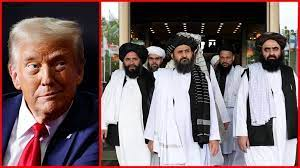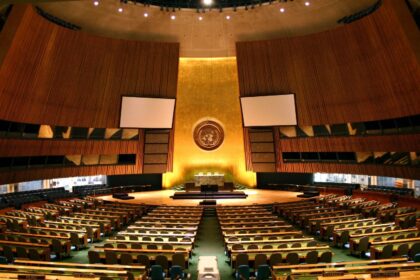RASC News Agency: The Taliban’s latest rhetoric over the Bagram airbase has been dismissed by experts as hollow propaganda, designed to project nationalist credentials while concealing the group’s transactional dealings with foreign powers.
The controversy erupted after U.S. President Donald Trump stated that Washington is “in talks with Afghanistan” to reclaim control of the Bagram airbase, once the largest U.S. military installation in the country. Trump made it clear he expected swift results, hinting at consequences should the arrangement not proceed according to his wishes.
In response, the Taliban’s spokesman Zabihullah Mujahid released a statement on Sunday, September 21, declaring that “the territorial integrity of Afghanistan has never been on the negotiating table.” He insisted that under the 2020 Doha Agreement, Washington pledged not to threaten Afghanistan’s sovereignty or interfere in its internal affairs. Mujahid further warned that any “repetition of past failed experiences” would bring “disastrous consequences.”
The Taliban’s Chief of Army Staff, Fasihuddin Fitrat, echoed these words, proclaiming that “not an inch of Afghanistan’s soil is negotiable.”
Yet analysts and commentators were quick to expose the contradiction between the Taliban’s fiery words and their actions. On Afghanistani social media, observers described the Taliban’s response as nothing more than “manufactured defiance” meant to stir nationalist sentiment. In reality, analysts argue, the group is engaged in quiet, transactional bargaining with both the United States and its global rivals. The Bagram dispute, they emphasize, is less a matter of sovereignty and more a question of which foreign power can offer the Taliban the greatest advantage.
Over the past four years, the Taliban have repeatedly demonstrated that their political and security decisions are dictated not by the interests of the Afghanistani people, but by opaque backroom deals with foreign states. Multiple reports suggest that while Mujahid was issuing defiant warnings in public, Taliban envoys were quietly engaging U.S. officials in negotiations, seeking additional concessions. At the same time, the group has cultivated ties with Russia, China, Iran, and other U.S. rivals, opportunistically leveraging geopolitical rivalries to extract benefits.
Political analysts stress that the Taliban have no coherent vision for governance, development, or sovereignty. Instead, their governance is marked by repression at home and opportunism abroad. The invocation of “independence” and “territorial integrity” is therefore not a genuine defense of Afghanistan but a propaganda tool to mask the group’s dependence on and readiness to bargain with whichever foreign power guarantees their survival.
For many Afghanistani citizens, the real danger is not the Taliban’s slogans but the consequences of their duplicity. By reducing Afghanistan to a bargaining chip in global power struggles, the Taliban risk returning the country to its tragic history as a theater of foreign competition. Meanwhile, ordinary citizens already crushed under the weight of Taliban repression, forced displacement, economic collapse, and the silencing of civil society remain the ultimate victims.
As analysts note, the Taliban’s handling of Bagram is not a defense of sovereignty; it is yet another reminder that the group’s priority is to preserve its own grip on power, even at the cost of Afghanistan’s independence and the suffering of its people.






